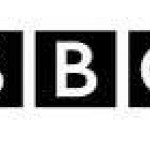- Industry: Broadcasting & receiving
- Number of terms: 5074
- Number of blossaries: 1
- Company Profile:
The largest broadcasting organisation in the world.
A pesticide is a substance used to kill a pest, and in a farming context a pest is anything that attacks or competes with crops. Hence, there are many different types of pesticides: for example, insecticides kill insects, and herbicides kill weeds. The chemicals used in pesticides can sometimes be toxic to humans, however, so organic farming endeavours to use natural rather than synthetic substances as pesticides.
Industry:Natural environment
A smoke-free zone (or smokeless zone, or smoke control area) is not, in this context, anything to do with cigarettes. It refers to an area, designated by a local authority, where only authorised fuels - for example smokeless fuel, coke, and gas - may be burned. Other fuels may sometimes be permitted when used on specified authorised appliances. Ordinary coal, and wood (other than small amounts of kindling) are prohibited. The zones originated in London after legislation in 1946 in response to terrible smogs but are now very common in towns and cities nationwide.
Industry:Natural environment
The second lowest level of the atmosphere, extending from about 10km to about 50km altitude. The ozone layer, the part of the earth's atmosphere with the greatest concentration of ozone, forms part of the stratosphere. Because it sits above the troposphere, where most air turbulence occurs, the lower stratosphere is where most commercial airlines set their cruising altitude.
Industry:Natural environment
Hydropower (or hydroelectric power) is the generation of electricity using the power of falling water.
Industry:Natural environment
Mercury (chemical symbol Hg) is a metal that is liquid at standard temperature and pressure. It is used in the manufacture of low-energy lightbulbs (CFLs and other fluorescent lights), and extra care must be taken in their disposal, especially when they are broken, because of mercury's toxicity.
Industry:Natural environment
Methane is a hydrocarbon, the main component of natural gas and among the six greenhouse gases to be curbed under the Kyoto protocol. As a greenhouse gas it is estimated to have a warming effect about 25 times as great as CO2. (Compared to CO2 its effects are greater but last for a shorter period). As a fuel, it is used in electricity generation and in the form of compressed natural gas it can be used as vehicle fuel. Methane is produced during the decomposition of many materials in landfill, while about 16% of methane emissions are caused by livestock's digestive processes.
Industry:Natural environment
Silicon is a chemical element known as a 'metalloid' (because it has intermediate properties between a metal and a non-metal). It is used as a semiconductor, for example in microchips in computers, and to make photovoltaic cells for solar panels.
Industry:Natural environment
A thermostat maintains the temperature of a system at or near a stipulated level using sensors that tell it when to turn off heating devices. In most household central heating systems, a wall-mounted thermostat is used to set a maximum temperature for the house, while thermostatic radiator valves can be used to set a desired level for individual radiators.
Industry:Natural environment
A toxin is a chemical compound from one organism that is harmful to another organism.
Industry:Natural environment
